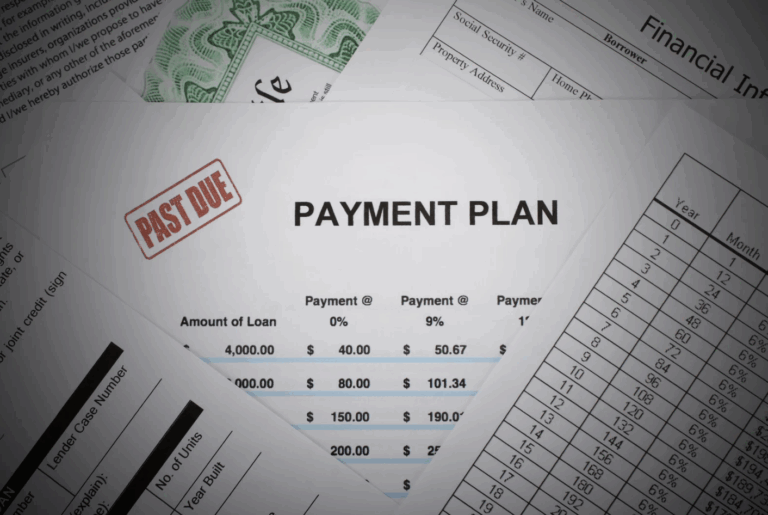If you’re in over your head with a merchant cash advance (MCA), you may be looking for ways to stop paying your MCA. There are a few ways to get out of an MCA, including filing for bankruptcy in certain cases.
Whether or not you can file bankruptcy on a merchant cash advance is a complex issue. So read on to learn more about how the bankruptcy process works and how your MCA fits in.
Can You File Bankruptcy on a Merchant Cash Advance?
A merchant cash advance is an alternative form of financing where a business receives a lump sum of money in exchange for a portion of its future sales. Unlike traditional loans, MCAs are typically structured as commercial transactions (AKA not loans at all). This distinction is crucial when considering bankruptcy.
Types of Bankruptcy
- Chapter 7 (Liquidation Bankruptcy): Involves liquidating assets to pay off creditors. Businesses often cease operations in this form.
- Chapter 11 (Reorganization Bankruptcy): Allows businesses to continue operating while restructuring debts.
- Chapter 13 (Individuals and Sole Proprietors): A reorganization bankruptcy meant for individuals, including sole proprietors, to restructure and pay off debts over time.
Legality of Filing Bankruptcy
Since MCAs are not traditional loans, they may be treated differently in bankruptcy. Courts will look at the nature of the MCA agreement to determine if it’s a true sale of future receivables or a disguised loan.
If the court interprets the MCA as a loan, it may be discharged in a Chapter 7 bankruptcy. However, if it’s deemed a sale of future receivables, the MCA provider may have rights to a portion of the business’s sales, complicating the discharge.
With Chapter 11 and 13 bankruptcy, the focus is on reorganization. You might negotiate the MCA debt as part of the restructuring plan, though the outcome depends on how the court views the MCA and the specifics of the bankruptcy plan.
Filing Bankruptcy on an MCA
Also, keep in mind that filing for bankruptcy isn’t a get-out-of-jail-free card. First, you have to qualify for bankruptcy. And if you do qualify, there are significant and long lasting financial consequences.
Determining whether you can file for bankruptcy involves several considerations, including:
- Types of debt: Assess the types of debts you have. Some debts, like certain taxes, child support, and student loans, are typically not dischargeable in bankruptcy. Additionally, if you’re a business owner, the nature of your debts (personal vs. business) and the structure of your business (sole proprietorship, partnership, corporation, etc.) will influence your options.
- Income: Your income level can affect which type of bankruptcy you can file. For Chapter 7 bankruptcy, you must pass the “means test,” which compares your income to the median income for a similar household in your state. If your income is too high, you might not qualify for Chapter 7.
- Previous bankruptcy filings: If you have filed for bankruptcy in the past, there are time limits before you can file again. For instance, after a Chapter 7 discharge, you must wait eight years before filing another Chapter 7 or four years before filing Chapter 13.
- Residency: You must meet residency requirements to file in a particular state. Usually, this means you’ve lived in the state for at least 90 days before filing.
- Credit counseling: Before you can file for bankruptcy, you must complete a credit counseling course from an approved agency within 180 days before filing.
Consequences of Filing Bankruptcy on a Merchant Cash Advance
Filing for bankruptcy as a business owner carries a range of consequences. It’s really important that you understand these implications so you can make an informed decision about filing.
- Impact on credit: Bankruptcy significantly affects your credit score, making it harder to obtain financing in the future. The bankruptcy can remain on your credit report for up to 10 years, depending on the type.
- Asset liquidation: In a Chapter 7 bankruptcy, assets may be liquidated to pay creditors. This could mean losing valuable business assets.
- Public record: Bankruptcy filings are public record, which can impact the reputation of the business among customers and suppliers.
- Personal liability: If you have personally guaranteed any business debts, you may still be liable for these debts. This depends on the type of bankruptcy filed.
- Cost and complexity: The bankruptcy process can be expensive. It can also be confusing, requiring legal fees and detailed documentation of finances.
- Operational limitations: During a Chapter 11 or 13 bankruptcy, businesses face operational limitations. They must get court approval for certain business decisions.
- Impact on employees: Bankruptcy can lead to downsizing, reduced morale, and uncertainty among employees.
- Supplier and customer relationships: Relationships with suppliers and customers may be strained or altered. This holds true especially if the bankruptcy affects certain contractual obligations.
- Difficulty in future business endeavors: Past bankruptcy can make it challenging to start new business ventures. This is because lenders may be hesitant to provide funding.
- Potential loss of control: In Chapter 11, a business owner might lose some control over business decisions to a bankruptcy trustee or creditors’ committee.
Advantages of Filing Bankruptcy on a Merchant Cash Advance
Despite the potential consequences, which can be severe, there are some advantages to filing bankruptcy on an MCA, particularly if your business is struggling with the repayment terms.
Automatic Stay
Filing for bankruptcy initiates an automatic stay, which immediately halts all collection efforts by creditors, including MCA providers in many cases. This stay can provide immediate relief from aggressive collection tactics and give you time to reorganize your finances.
Potential Debt Discharge or Restructuring
Depending on the type of bankruptcy filed, the MCA debt may be discharged (completely wiped out) or restructured into a more manageable repayment plan. However, this means you could end up paying back much more than originally due to the MCA provider.
Negotiation Leverage
The prospect of bankruptcy can sometimes give a business leverage to negotiate more favorable terms with the MCA provider outside of the bankruptcy process (which would need to be approved by the court if you’ve filed). Keep in mind, however, that the threat of bankruptcy doesn’t always work when dealing with MCAs and they can continue to go after you until they see an actual bankruptcy.
Business Continuation
Especially under Chapter 11, businesses can continue operating while undergoing bankruptcy proceedings. This allows for the restructuring of business operations and debts without ceasing operations.
Disadvantages of Filing Bankruptcy on a Merchant Cash Advance
Bankruptcy may be the right solution for dealing with MCA and other types of business debt, but there are significant drawbacks to be aware of. Some of the most important include:
Impact on Credit Score
Filing for bankruptcy can have a severe negative impact on your business credit score, and if you are a sole proprietor, on your personal credit score as well. This can affect your ability to secure financing in the future or other needs for your business.
Public Record
Bankruptcy filings are public records, which can lead to reputational damage. Customers, suppliers, and potential business partners may view your business as financially unstable, impacting future business relationships.
Legal and Administrative Costs
The bankruptcy process can be costly, involving attorney fees, filing fees, and other administrative expenses. These costs can add up, especially for small businesses with limited financial resources. Plus, the process of filing for bankruptcy and navigating the legal system can be time-consuming and complex. This can distract from the day-to-day operations of your business.
Difficulty in Future Credit and Business Opportunities
Post-bankruptcy, businesses often find it more challenging to obtain credit, secure investment, or engage in certain business opportunities. Lenders and investors may be hesitant to engage with a business that has a bankruptcy history. Bankruptcy can affect existing contracts and leases, potentially leading to renegotiation or termination, which can disrupt business operations.
MCA Bankruptcy Alternatives
If you’re considering filing bankruptcy, know that there are some alternatives to dealing with unmanageable MCAs. Each alternative has its own advantages and challenges, so it’s important to assess them in the context of your specific business situation:
- Debt restructuring or consolidation: You may be able to negotiate with the MCA provider to restructure the debt. This could involve extending the repayment period, reducing the payment amount, or consolidating multiple advances into one with more favorable terms. It’s not recommended to do this without an experienced MCA debt help attorney, since there are many legalities of the agreement with the MCA.
- Refinancing with a traditional loan: If your credit is in good shape, you might consider securing a traditional bank loan or SBA loan with a lower interest rate to pay off the MCA. This could reduce your monthly payments and provide more manageable repayment terms.
- Asset liquidation: Selling off non-essential business assets can generate cash to pay down the MCA. This approach requires careful consideration to avoid impairing your business’s operational capacity.
- MCA settlement: Consider hiring a business debt settlement attorney who specializes in MCA debt. They can negotiate with the MCA provider on your behalf to settle the debt for a fraction of the owed amount and help protect your business cash flow and credit.
- Seeking investor funding: If your business has potential for growth, seeking additional funding from investors might provide the capital needed to satisfy your current MCA obligations.
Contact Tayne Law for MCA Help
The possibility of filing bankruptcy on an MCA depends on various factors, including the nature of the MCA, the type of bankruptcy, and the interpretation of the agreement by the bankruptcy court. It’s a nuanced area where an experienced business debt relief attorney is essential to navigate the specifics of each case. Businesses considering this route should consider hiring an MCA attorney to understand their options and the potential outcomes and stay protected.
Tayne Law is a New York-based law firm with decades of experience helping clients resolve their business debt and specifically MCA and other types of consumer and funding based business debt. We can review your situation and devise a plan that keeps your business and personal matters intact. Give us a call at (866) 890-7337 or fill out our short contact form for a free, no-obligation phone consultation. We never sell or share your information and will keep your matter confidential.





